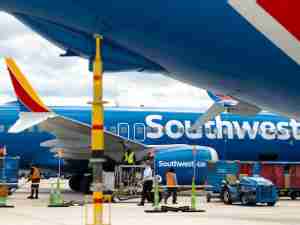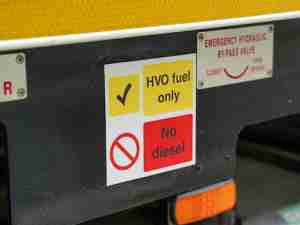EasyJet Benefits From Ryanair’s Retreat as Winter Fares Gain
By: | Nov 21 2017 at 11:15 AM | Air Cargo
EasyJet Plc said its fares are set to gain this winter, buoyed by the collapse of carriers including U.K.-based Monarch Airlines Ltd. and capacity cuts at main European rival Ryanair Holdings Plc.
The demise of Monarch and Germany’s Air Berlin Plc, a bankruptcy filing at Italy’s Alitalia SpA and Ryanair’s move to scrap part of its timetable because of a staffing crisis are “all very good news for EasyJet,” Chief Executive Officer Carolyn McCall said in an interview Tuesday.
EasyJet shares rose the most in three years after the Luton, England-based carrier said that revenue per seat—a measure of prices—should increase in the six months through March after a drop last year, excluding the impact of taking over some Air Berlin routes.
McCall, who stands down as chief before the end of the year, said the shakeout of Europe’s airlines has benefited EasyJet structurally and given Europe’s second-biggest discount airline strong momentum going into fiscal 2018. The retreat of rivals comes as a boost after the weaker pound weighed on last year’s earnings.
Ryanair has canceled more than 20,000 flights after failing to adequately prepare for new pilot-vacation rules. McCall said that’s been a positive development, while declining to reveal which routes are benefiting.
The failure of Monarch on Oct. 2 eliminated capacity at EasyJet’s Luton and Gatwick hubs, and while the defunct company’s operating slots are set to be reallocated they’ll no longer be concentrated at a single rival.
“The first half is looking extremely positive and that is as a direct result of the dislocations in the market,” McCall said on Bloomberg TV. Revenue per seat should increase by a low to mid-single digit percentage in the six months through March, versus a 0.4 percent drop in fiscal 2017.
Oil Squeeze
Heading into next summer, higher oil prices are likely to result in further pressures for carriers, McCall said, so that “the strong will get stronger and the weak will get weaker.” EasyJet itself is “very well hedged,” she added.
Deutsche Lufthansa AG’s discount unit Eurowings also said Tuesday that it expects there to be more airline collapses and mergers, especially with saturated markets making organic growth such a tough proposition.
“We believe in consolidation and we believe what we’ve seen in 2017 is just the beginning,” Managing Director Oliver Wagner said at a the Aviation Symposium 2017 conference in Frankfurt, adding that the group plans to look beyond its home markets of Germany, Austria, Switzerland and Belgium for opportunities. Eurowing also sees fares stabilizing next year.
Shares of EasyJet advanced as much as 7.5 percent, the biggest gain since Oct. 3, 2014, and were trading 6 percent higher at 1,354 pence as of 3:49 p.m. in London. That takes gains this year to 35 percent, compared with 24 percent at Ryanair, though EasyJet’s 5.38 billion-pound ($7.1 billion) market value is only a quarter that of the Irish carrier.
Air Berlin Costs
EasyJet’s pretax profit for the year ended Sept. 30 fell 17 percent to 408 million pounds, according to a statement, hurt by sterling’s slide and a glut of seating in European markets. That’s in line with guidance given in October.
The company said it’s too early to comment on the outlook for next summer, while estimating that taking over Air Berlin plane leases and slots at the German capital’s Tegel airport will incur losses of about 60 million pounds in fiscal 2018, plus 100 million in one-off expenses. The acquisition should close next month.
McCall joined EasyJet as CEO in July 2010 from Guardian Media Group Plc, and is returning to her roots to head up U.K. broadcaster ITV Plc. She said she has met with successor Johan Lundgren and will see him a couple more times, while adding “if I have any tips I’m going to give those to him privately.”









